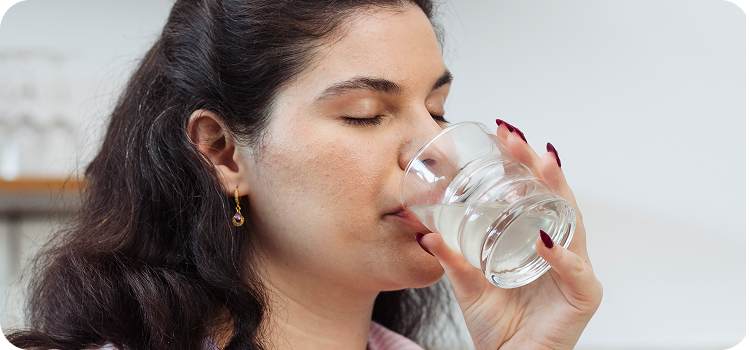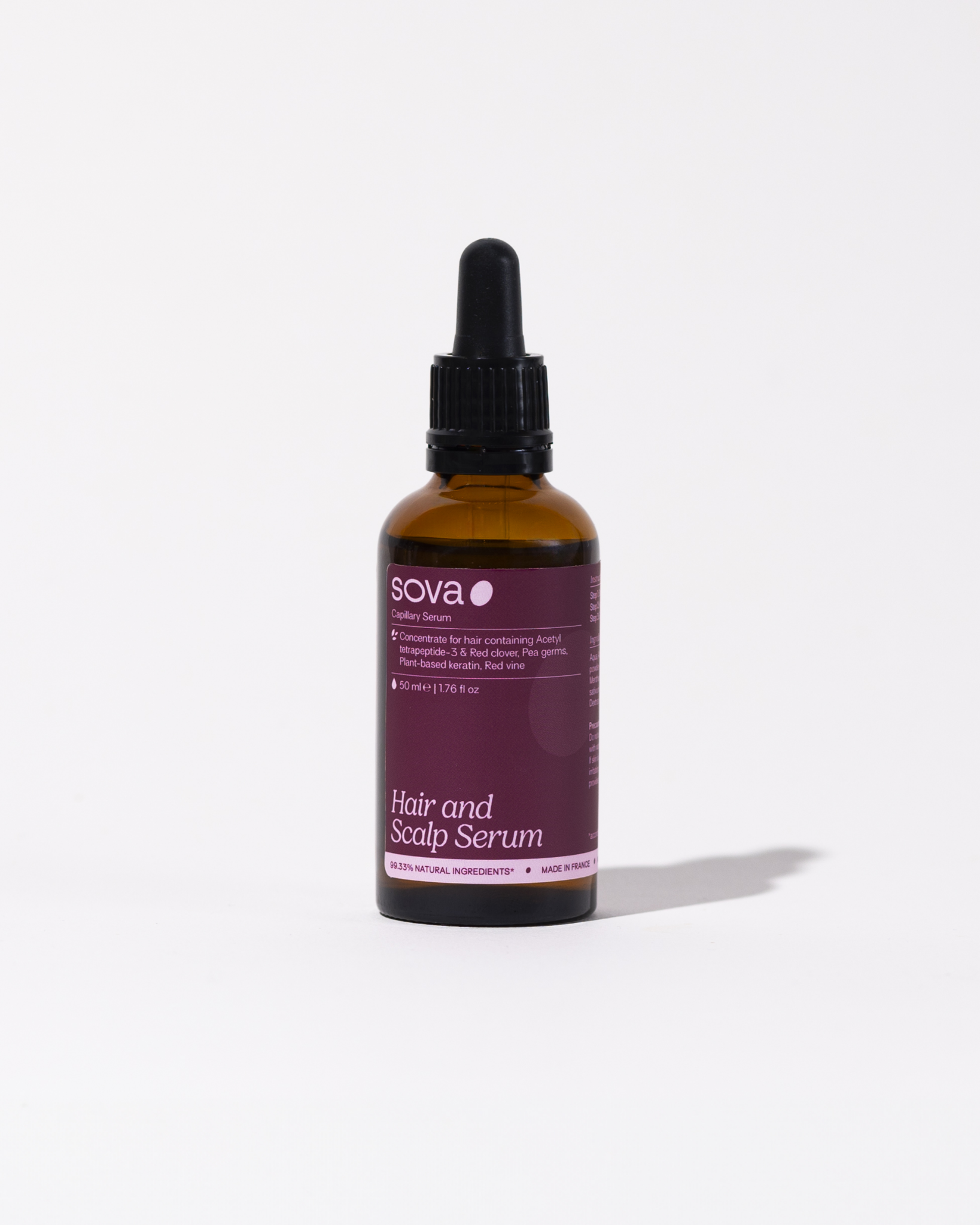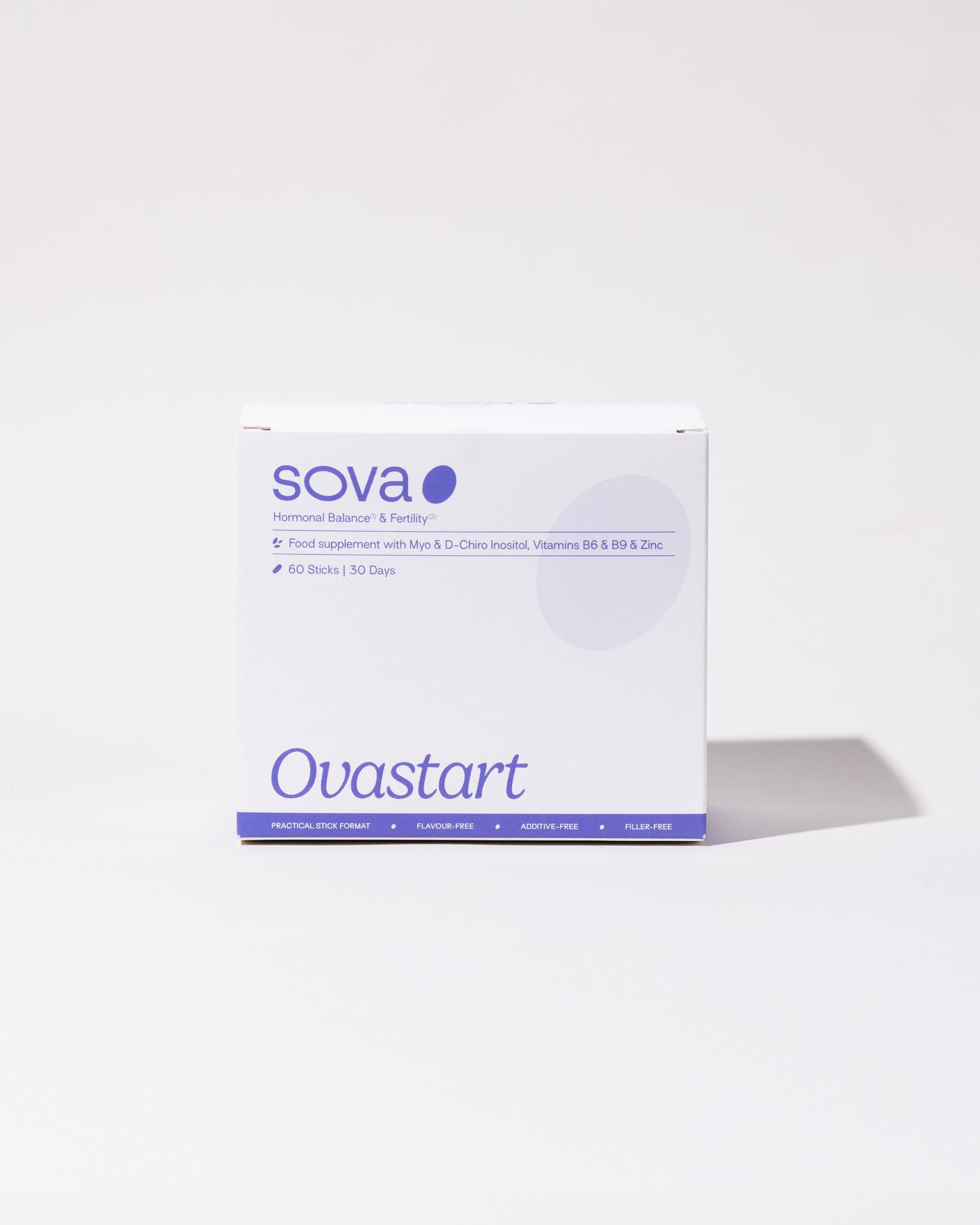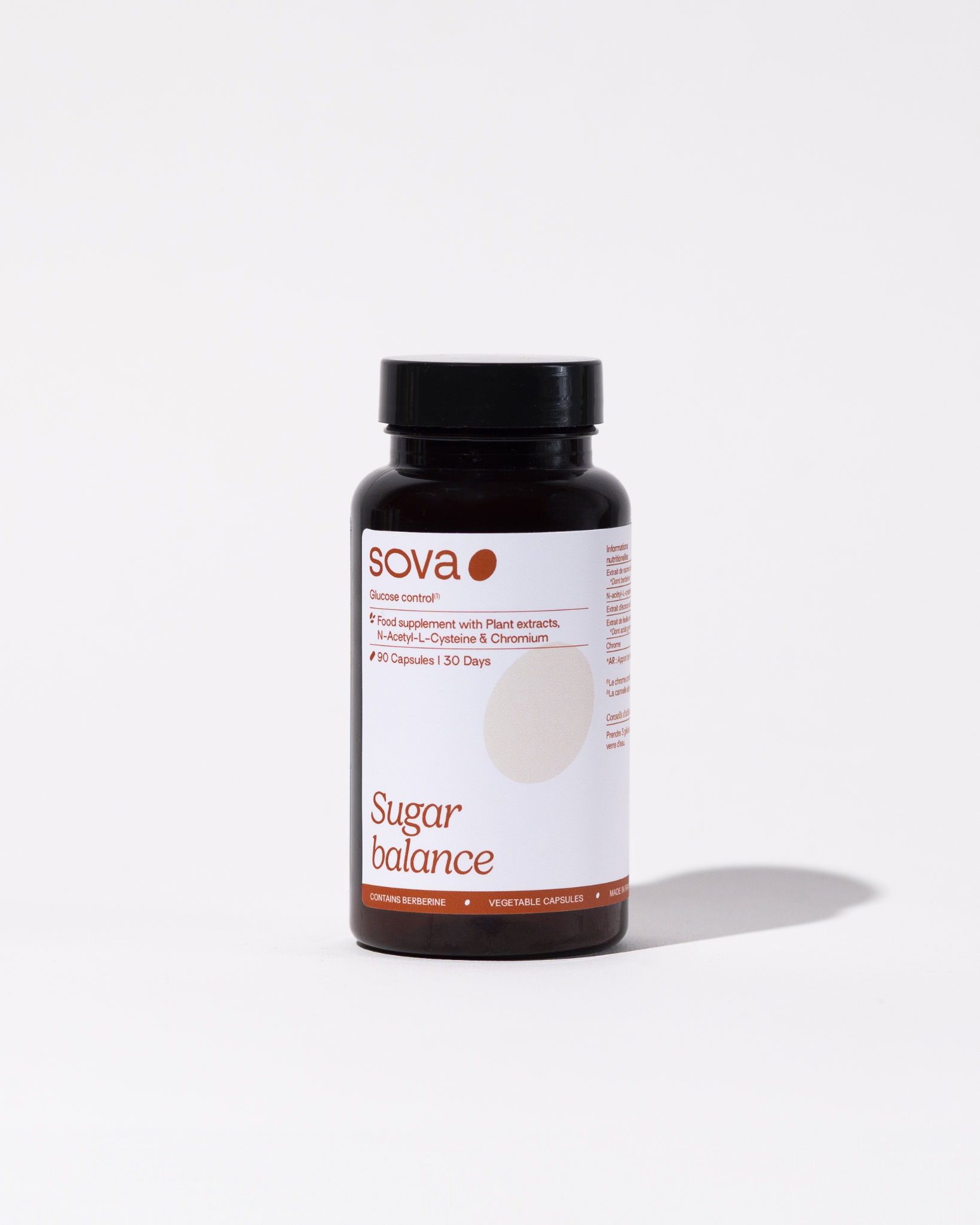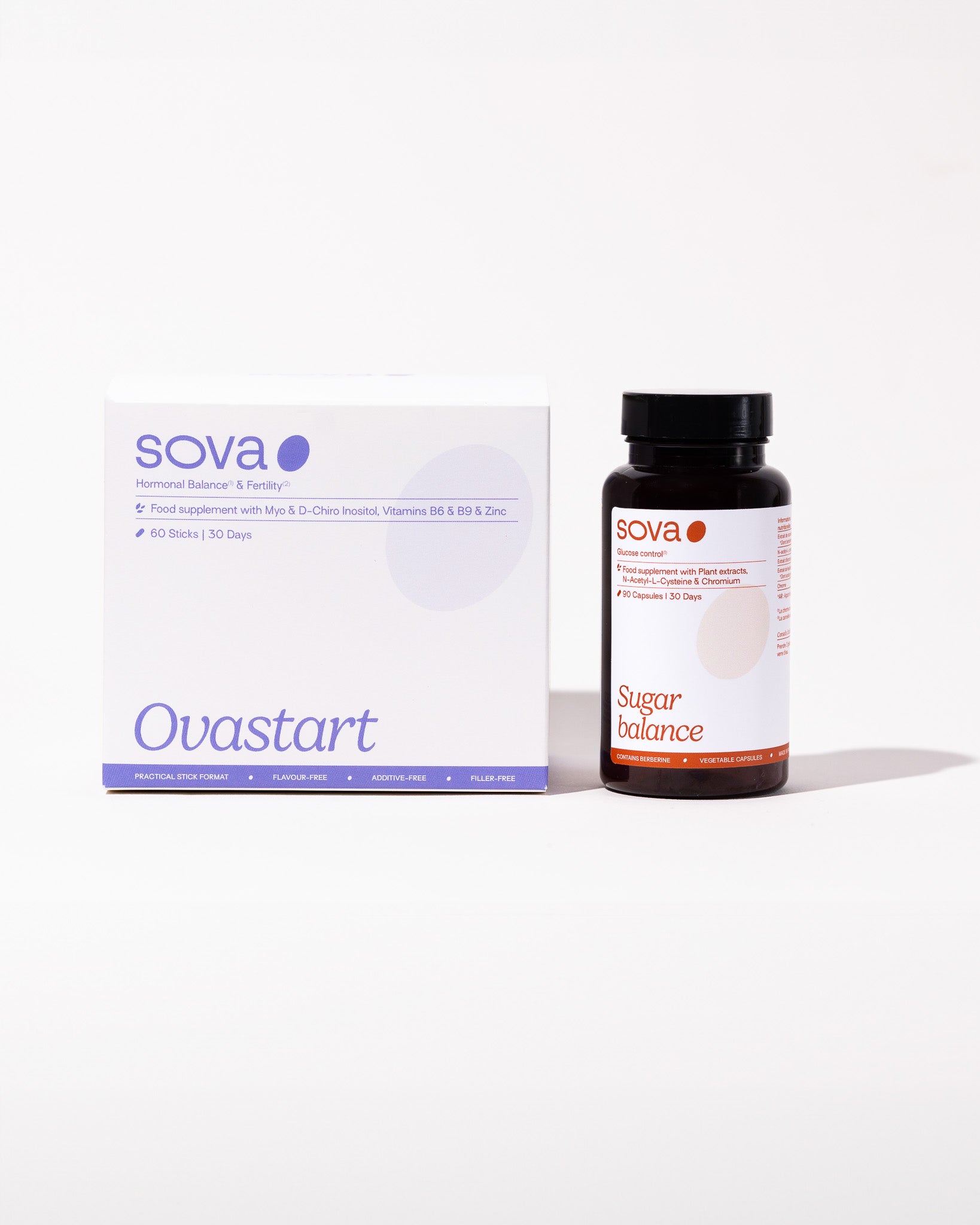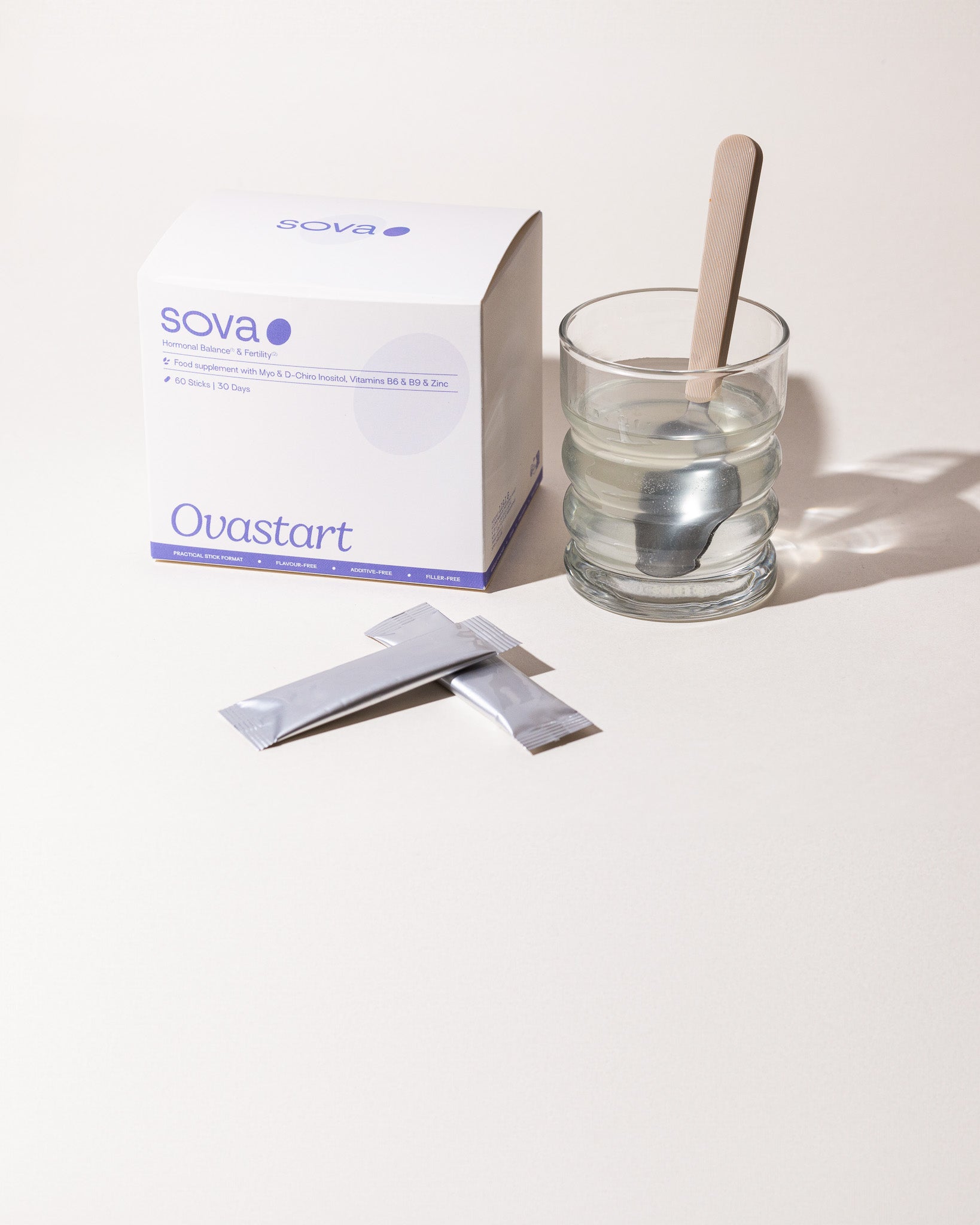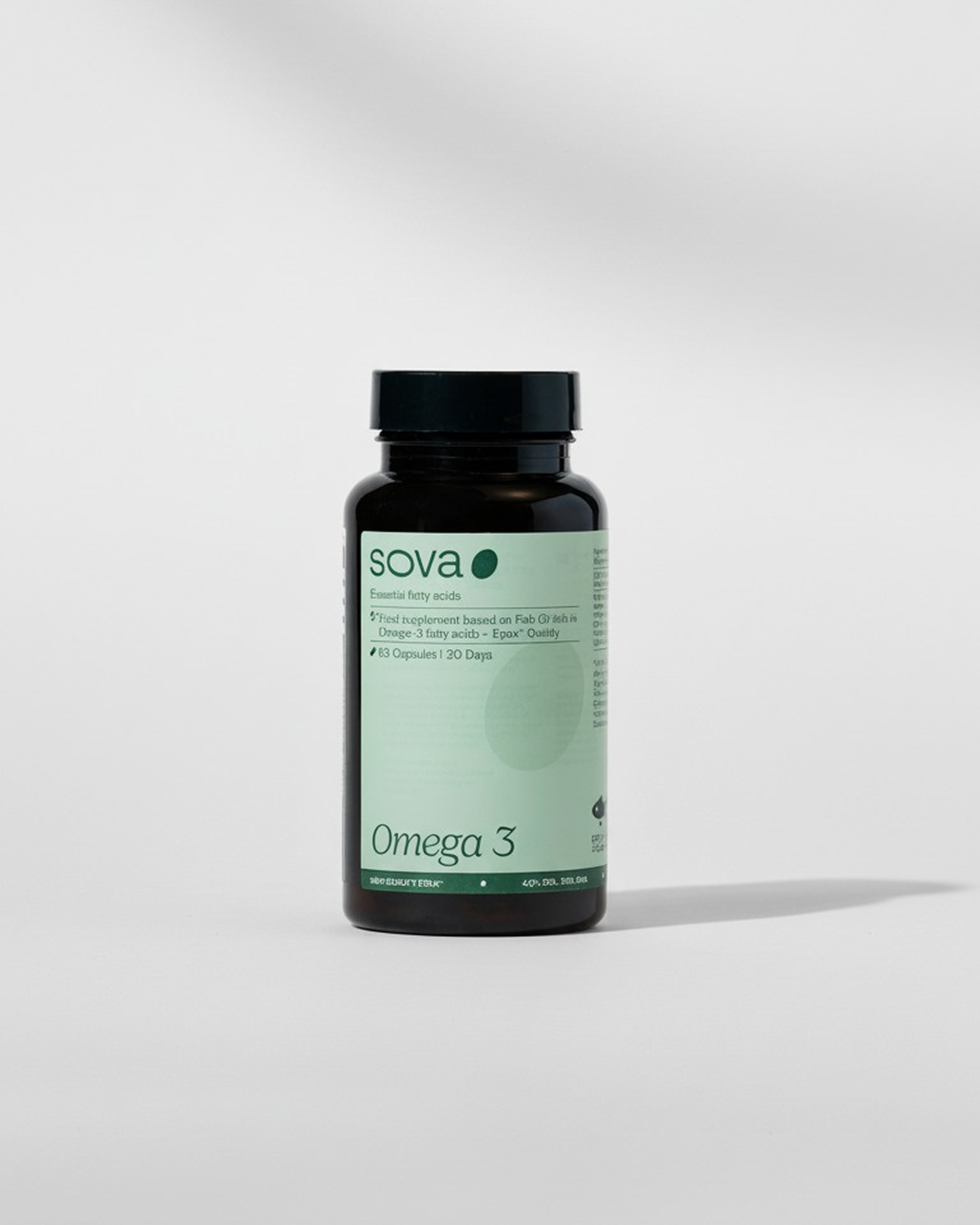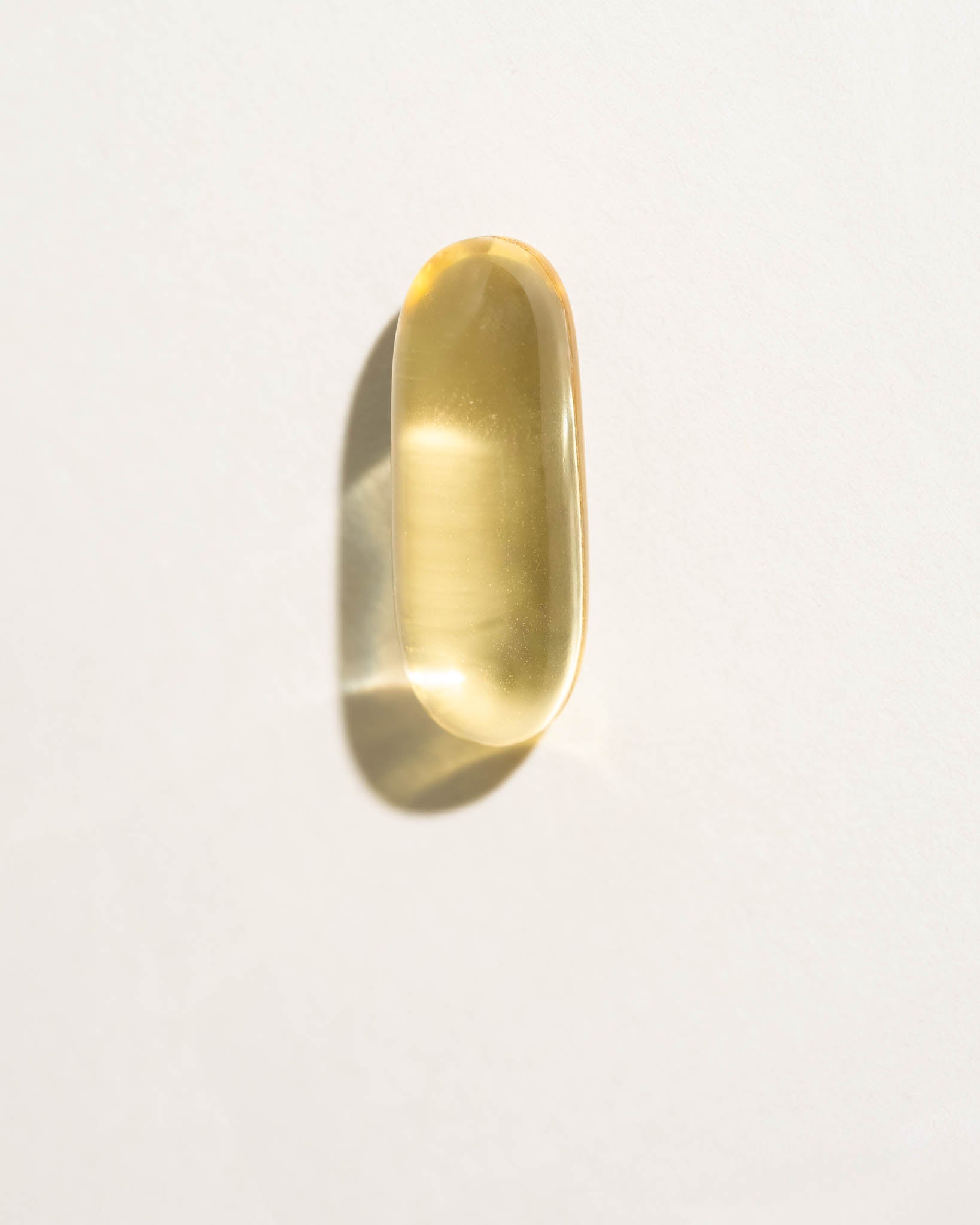Maybe you’ve already heard there’s a connection between PCOS and hypothyroidism but you’re not sure how they relate. You’ve been diagnosed with hypothyroidism or Hashimoto’s and no one really explained its impact on PCOS? You’re wondering whether your symptoms come from PCOS or from a sluggish thyroid? In this article, we break down how your thyroid can influence your menstrual cycle and your PCOS.
Your thyroid: the conductor of your metabolism
The thyroid is a butterfly-shaped gland at the base of your neck, just below the Adam’s apple. It’s part of your endocrine (hormonal) system, so it secretes hormones. These hormones help regulate your metabolism: body temperature, heart rate, digestion — and your menstrual cycle.
Think of your thyroid as the conductor: it stimulates protein production throughout the body and manages cellular oxygenation.

What is hypothyroidism?
“Hypo” means “too little”. In hypothyroidism, your thyroid doesn’t produce enough thyroid hormones. As a result, your metabolism slows because it’s not being sufficiently stimulated. To compensate, your brain produces more TSH (thyroid-stimulating hormone) — the hormone that tells your thyroid to make T3 and T4.
TSH is your brain’s messenger. If your body makes too many thyroid hormones, the brain releases less TSH (hyperthyroidism). If it’s not making enough, the brain releases more TSH (hypothyroidism). TSH simply asks your thyroid to increase or decrease hormone output based on your needs.
Logically, hypothyroidism symptoms mirror a slowed metabolism:
- Fatigue
- Irregular cycles
- Heavy periods
- Infertility
- Hair loss
- Dry skin
- Water retention
- Puffy face/eyelids
- Weight gain
- High cholesterol
- Feeling cold
- Cold hands and feet
- Constipation
- Brain fog
- Low mood/depression
How is hypothyroidism diagnosed?
Start by listing your symptoms and discuss them with your GP and/or an endocrinologist. After a clinical assessment, your doctor may prescribe blood tests.
The first-line marker is TSH. Doctors may also request T3 and T4, and their free fractions (free T3 / free T4), which are the biologically available forms your body can actually use.
Some clinicians (e.g., Dr Benoît Claeys) highlight two caveats:
-
You can have hypothyroidism with a normal TSH.
-
Laboratory reference ranges aren’t always updated or clinically oriented.
For illustration (Claeys):
| Hormone | “Health” range | Typical lab range |
|---|---|---|
| TSH | 0.25–1.3 mIU/L | 0.3–4.3 mIU/L |
| Free T3 | 3.5–4.5 pmol/L | 3.5–6.5 pmol/L |
| Free T4 | 15–18 pmol/L | 9–26 pmol/L |
Source: “En finir avec l’hypothyroïdie…” – Dr Benoît Claeys.
This is why he relies heavily on clinical symptoms alongside labs when assessing hypothyroidism.
Hashimoto’s thyroiditis
Hashimoto’s is an autoimmune inflammation of the thyroid: your immune system mistakenly targets your thyroid with antibodies. Auto-immune “-itis” conditions are inflammatory and often chronic, fuelled by lifestyle factors (stress, poor sleep, ultra-processed foods, pollution, endocrine disruptors, etc.).
Diagnosis is similar to hypothyroidism (clinical exam + blood tests) with the addition of thyroid antibodies: anti-thyroglobulin (TgAb/AcTG) and anti-thyroid peroxidase (TPOAb/AcTPO). If either is elevated, Hashimoto’s is likely.
How the thyroid affects the menstrual cycle — and PCOS
If the thyroid conducts metabolic functions, it naturally influences the menstrual cycle (considered a vital sign alongside heart rate, blood pressure, temperature, and respiration).
Research shows follicle development and ovulation are stimulated by thyroid hormones. Some authors suggest that ovarian cysts seen in hypothyroidism can be associated with elevated TSH. When TSH runs high, it may stimulate FSH receptors in the ovary (FSH drives follicle development). This could explain multifollicular/“polycystic-appearing” ovaries in hypothyroidism.
Hypothyroidism can also contribute to:
-
Hyperprolactinaemia (raised prolactin), which can block ovulation by altering LH secretion. (LH is often atypically high in some PCOS profiles.)
-
Higher androgens (so-called “male” hormones) — driving hirsutism, acne, androgenic hair loss and amplifying inflammation.
-
Worsened insulin resistance, a core PCOS feature.
-
Altered oestrogen metabolism, leading to oestrogen excess.
-
Reduced clotting factors, contributing to heavy bleeding.
A helpful stat: around 40% of women with amenorrhoea or hypothyroidism show elevated prolactin.
If you’ve had a full hormone panel, your prolactin level can hint at a thyroid link:
-
High prolactin → worth exploring hypothyroidism.
-
Normal prolactin → a thyroid link is less likely.
In short, if prolactin is raised, you may be more likely to have hypothyroidism than primary PCOS, with hypothyroidism mimicking PCOS symptoms — i.e., the root cause to address.
This also applies when PCOS is associated with amenorrhoea (no period >3 months in regular cyclers; >6 months in irregular cyclers).
Two practical PCOS patterns:
-
PCOS without amenorrhoea: long but fairly regular cycles (>35 days; e.g., consistent 35–45-day cycles).
-
PCOS with amenorrhoea: months without periods (e.g., 2–3 bleeds per year).
These are clues, not diagnoses. Always consider context and co-existing issues. Only a clinician can diagnose. (For reference: “normal” prolactin is often quoted around 5–20 ng/mL.)
Remember the hypothalamus–pituitary–ovary/thyroid conversation: tiny disturbances anywhere in this network can ripple across cycles, ovulation, mood, energy — everything.
Natural ways to support your thyroid — and improve PCOS
1) Take stock of your lifestyle
Possible thyroid disruptors:
- Micronutrient gaps: iodine, iron, zinc, selenium, vitamin D, B12, manganese, molybdenum, vitamin E
- Stress load: intense routine/training, anxiety, low mood, trauma, poor sleep, emotional overload
- Ultra-processed diet or unmet nutrition needs
- Medications (incl. some contraceptives)
- Pollutants / endocrine disruptors
- Digestive issues (constipation, diarrhoea, bloating, reflux/heartburn)
- Sedentary lifestyle
Pick 1–3 priority levers you can work on daily.
2) Nutrition to nudge your thyroid
Aim for a mostly anti-inflammatory diet, with sufficient iodine — especially if you have Hashimoto’s (always discuss iodine strategy with your clinician).
Good sources of iodine:
-
Fish and seafood
-
Iodised table salt
-
Seaweeds
To encourage thyroid hormone production, increase L-tyrosine (abundant in protein). An easy win: add protein to breakfast (which also helps stabilise blood sugar — helpful in PCOS).
Protein-rich breakfast ideas: eggs, ham, cheese, smoked salmon or trout, almond butter.
Selenium also matters for thyroid hormone metabolism:
-
Brazil nuts
-
Oysters
-
Tuna
Quick tip: two Brazil nuts at breakfast typically meet daily selenium needs.
For a practical PCOS nutrition overview, see our guide:
👉 Diet and PCOS: The Basics
3) Smart supplementation when PCOS & hypothyroidism overlap
-
Vitamin D — Supports immune balance (relevant in Hashimoto’s) and glucose–insulin metabolism for blood-sugar stability in PCOS. Consider testing, then supplementing as advised by your clinician.
-
Omega-3 — Potent anti-inflammatory support for immunity and the nervous system. Particularly helpful in Hashimoto’s or PCOS with metabolic syndrome (weight gain, insulin resistance).
→ Explore Omega-3 -
Magnesium — Eases stress reactivity, supports energy, muscle function and sleep, and can help with cramps.
-
Adaptogens (e.g., ashwagandha) — May help the body adapt to stress, calm the nervous system, and support thyroid output in subclinical hypothyroidism. Always discuss with your healthcare professional, especially if on thyroid medication.
If PCOS is your main concern and you want a science-backed foundation (inositols, zinc, B-vitamins for energy and hormone balance), consider Ovastart and get personalised guidance with our quick PCOS quiz.

PCOS & hypothyroidism: communicating vessels?
In the end, having PCOS may increase your risk of thyroid dysfunction, and having hypothyroidism may mimic PCOS — which can be confusing.
For some women, the primary issue is hypothyroidism, and the PCOS-like picture improves once the thyroid is addressed. Conversely, PCOS (particularly inflammation- or stress-driven) can unsettle the thyroid because chronic inflammation and stress interfere with the brain–endocrine conversation (ovaries, uterus, thyroid, adrenals…).
So, both conditions can be distinct — or feed into each other.
The most helpful approach is to take a step back: the diagnosis names part of the mechanism, but you’re a complex whole — body and mind.
Start with lifestyle foundations (sleep, stress, protein-rich and anti-inflammatory meals, movement, targeted micronutrients), and seek support from qualified health professionals to get to the root causes of your PCOS and/or hypothyroidism.
Handy next steps
-
Take the PCOS product quiz for tailored support.
-
Consider cornerstone supports: Omega-3 and Magnesium.
-
Read next: Diet and PCOS: The Basics

